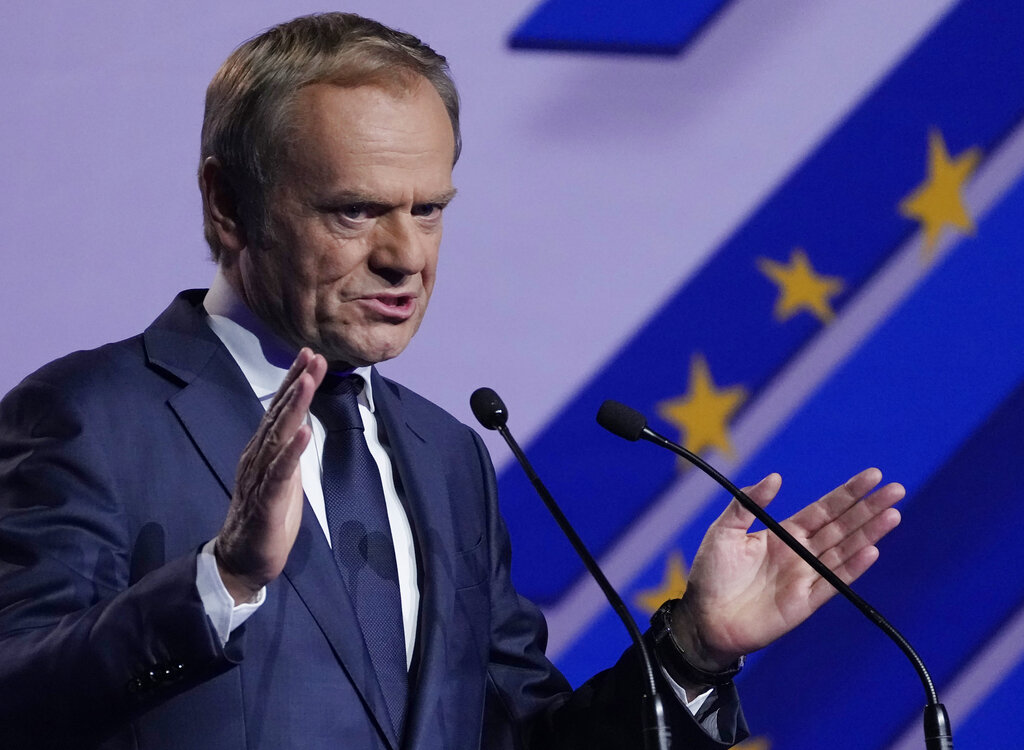Before coming back into Polish politics, former Polish Prime Minister Donald Tusk was given a clear assignment by the Eurocrat establishment. His task was to bring down the present conservative government and get Poland ready to enter the eurozone by first entering the ERM II system.
Last summer, it seemed that bringing down the government might be achievable via street protests around the abortion debate. These protests had the support of all the opposition parties and were to be amplified through the blocking of the EU Recovery Fund allocation for Poland.
The protests petered out because they did not concern the majority of the population, but the blocking of EU funds is still on the agenda, even despite the agreement reached by the Polish government with the European Commission. It now looks increasingly likely that the Commission will not release the funds until after next year’s parliamentary election in the fall. It hopes that this election will be won by the opposition led by Donald Tusk.
The PO leader has not only failed to get street protests to overthrow the present government, he has also failed to block the reappointment of Adam Glapiński as head of Poland’s central bank (NBP). Glapiński is a staunch opponent of Poland joining the eurozone and has declared that it will never happen while he is head of the NBP.
Joining the eurozone is a lengthy procedure involving the fulfillment of fiscal and monetary Maastricht criteria. In Poland, additionally, there is a need to change the constitution, which specifies that the Polish currency is the złoty; to do this would probably require a referendum to be held.
But joining the ERM II system, which commits the złoty to a fixed exchange rate against the euro would not require such a change and would effectively commit the country to entering the eurozone sooner rather than later.
In order to apply for membership in ERM II, it would be enough for Poland’s finance minister, together with the head of Poland’s central bank, to apply to the European Central Bank (ECB) proposing a fixed rate of the złoty against the euro. The central bank would then have to defend that set value with only 15 percent variations allowed either way.
This is why Tusk is so keen to oust Glapiński from his post as head of the NBP, and why he recently said that he would personally make sure Glapiński is physically removed from the NBP.
The PO chief is well aware that 65 percent of the voters in Poland are against joining the eurozone. This is why he will not go on record promising to take the country into the European single currency, but he is committed to European integration and will want to fulfill the tasks given to him by the Eurocrat establishment.





